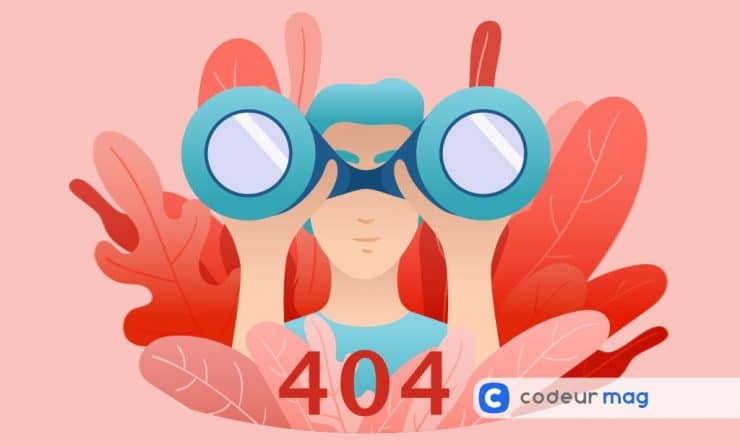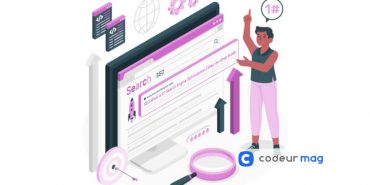Avez-vous déjà cliqué sur un lien en lisant un billet de blog, pour vous retrouver sur la célèbre page 404 ? C’est triste, n’est-ce pas ? Vous étiez sur le point de lire une information intéressante qui vous a poussé à cliquer sur ce lien, et bien non.
Mais, si le problème est présent sur les sites que vous visitez, votre propre site est peut-être touché également ? Cela n’a pas seulement un impact sur l’expérience de l’utilisateur, mais aussi sur référencement de votre site, et donc le trafic.
Ne paniquez pas, je vais vous montrer comment trouver vos liens cassés.
Les outils de cet article ont été sélectionnés par notre équipe et ne sont pas sponsorisés. Découvrez comment sponsoriser votre outil.
Les liens, c’est bien 😊
Le web mondial est dépendant des liens – c’est l’essence même de ce qu’est Internet.
Vous aimez quand vous tombez sur des liens pertinents, n’est-ce pas ? Et j’espère que vous incluez des liens – internes et externes – dans votre contenu. Bien sûr, il y a de bons et de mauvais liens.
À lire aussi : SEO : désavouer les backlinks toxiques
Mais parfois, ils meurent 😢
Les liens peuvent être rompus pour diverses raisons :
- Vous avez mal tapé le lien – cela arrive, vérifiez toujours vos liens, même un espace supplémentaire à la fin peut casser un lien.
- Le site web auquel vous vouliez accéder n’existe plus.
- Le site web a été restructuré ou mis à jour et son contenu n’existe plus.
- Le contenu a changé de place et l’URL n’est plus la même.
À lire aussi : Détectez les « clics de rage » avec Google Tag Manager
Et vous devez les corriger
C’est votre travail de webmaster de vérifier les liens dans le cadre de votre maintenance régulière. Si vous vous en occupez, ce n’est pas une tâche si chronophage. Si vous avez vraiment de la chance, vos lecteurs eux-mêmes vous diront s’ils en trouvent (mais ne comptez pas trop là-dessus).
Heureusement, il existe une sélection d’outils disponibles pour les différentes plateformes – Web, WordPress, Windows, Mac et Linux – qui peuvent vous aider.
Sans plus attendre, jetons un coup d’œil à certains des outils que vous pouvez utiliser pour trouver et réparer vos liens brisés.
Google Search Console (Web)
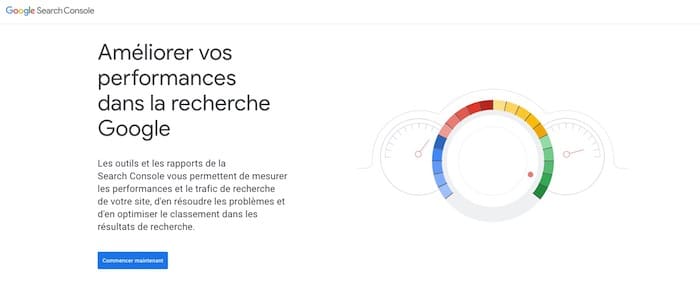
La Console de recherche Google (anciennement webmaster tools) est un point de départ.
- Rendez-vous sur votre tableau de bord.
- Sous la rubrique Vue d’ensemble, vous obtiendrez un aperçu rapide des erreurs que Google a pu trouver lors de l’indexation de votre site web.
- Vérifiez les liens et voyez s’ils ont besoin d’être réparés.
Attention : Il se peut que vous deviez mettre à jour votre sitemap si vous avez supprimé ou renommé des pages.
Broken Link Check (Web)

Broken Link Check est un outil de contrôle de liens en ligne très facile à utiliser. Il renvoie les résultats avec une URL et un lien SRC afin que vous puissiez identifier la partie de votre codage qui est erronée.
L’outil permet de :
- Vérifier les liens morts sur vos sites web
- Scanner un nombre illimité de pages web
- Valider des URL internes et externes
- Indiquer l’emplacement des liens problématiques dans votre code HTML
- Signaler les codes d’erreur (404 etc.) pour toutes les mauvaises URL
W3C Link Checker (Web)

Pour rechercher des liens brisés sur votre site à l’aide du Link Checker de W3C, suivez les étapes suivantes :
- Utilisez votre navigateur web pour visiter le Link Checker du W3C.
- Dans la zone de texte Saisissez l’adresse (URL) d’un document que vous souhaitez vérifier, tapez l’URL du site que vous souhaitez scanner.
- Pour ne voir que les résultats pertinents, cochez la case Résumé seulement.
- Pour vérifier les liens sur les pages suivantes, cochez la case Vérifier les documents liés de manière récursive. Dans la zone de texte de la profondeur de récursion, tapez le nombre de niveaux que vous souhaitez vérifier.
- Cliquez sur Vérifier. Les résultats apparaissent au fur et à mesure que chaque page est scannée.
Autres outils de vérification des liens
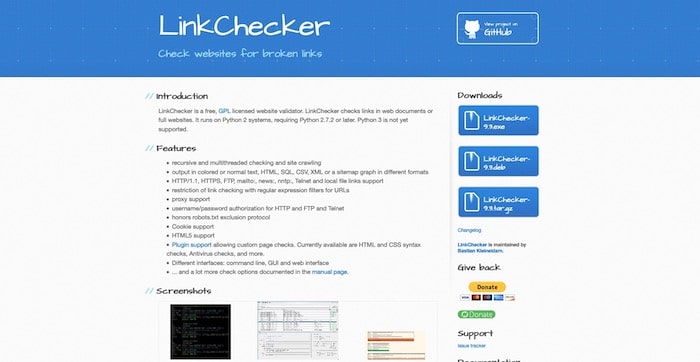
Globalement, les outils listés ci-dessus fonctionnent tous très bien, et plus ou moins de la même manière… Si vous n’avez pas trouvé chaussure à votre pied, ou préférez une solution autre qu’en ligne, voici une petite liste de logiciels que vous pouvez télécharger :
- Xenu’s Link Sleuth (Windows uniquement)
- Screaming Frog SEO Spider (Windows & Mac) (version gratuite limitée)
- Link Checker (Windows, Mac & Linux)
- Integrity (Mac)
Et pour WordPress ?
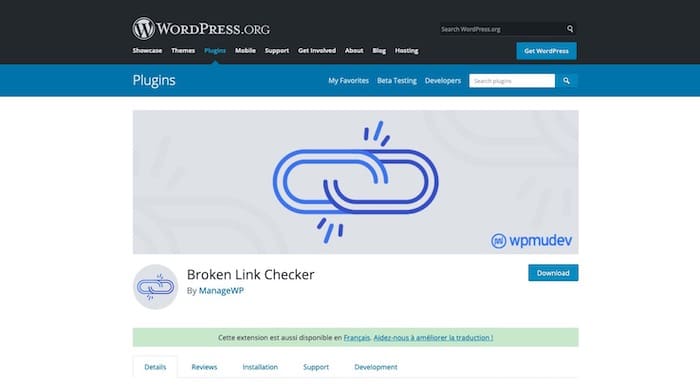
Pour finir, je vous glisse ni un outil en ligne, ni un logiciel, mais un plugin WordPress : Broken Link Checker. Il en existe évidemment d’autres, mais j’aime bien celui-ci, très configurable. Il permet notamment de :
- Surveiller les liens dans vos articles, pages, commentaires, la blogroll et les champs personnalisés (facultatif).
- Détecter les liens qui ne fonctionnent pas, les images manquantes et les redirections.
- Être averti soit via le tableau de bord, soit par mail.
- Faire en sorte que les liens brisés s’affichent différemment dans les messages (optionnel).
- Empêcher les moteurs de recherche de suivre les liens brisés (facultatif).
- Les liens peuvent être édités directement depuis la page du plugin, sans avoir à mettre à jour manuellement chaque message.
N’oubliez pas, vous pouvez toujours faire appel à freelance de Codeur.com pour vous aider à optimiser la qualité de votre contenu et de votre SEO.
